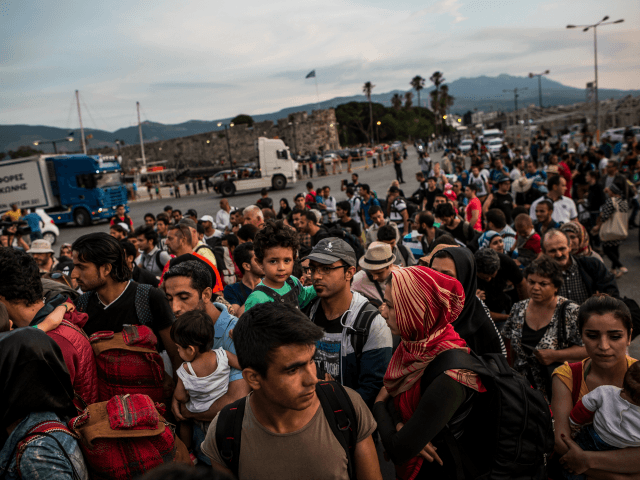BRUSSELS (AP) — European Union countries have begun the process of sending migrants who arrived over the last five months via Greece back there to have their asylum applications assessed, resuming a practice that was suspended as Greece struggled to cope with a massive refugee influx.
EU rules oblige migrants to apply for asylum in the country they first entered. But the requirement was put on hold as hundreds of thousands of people, many of them Syrian refugees, reached Greece on boats from Turkey in 2015.
The EU’s executive arm recommended in December that member countries gradually resume sending unauthorized migrants who arrived after March 15 back to Greece, which often is the first point of entry to the 28-nation EU.
Some countries have requested permission from Greece to return such people, but none have been transferred since mid-March, Greek officials say.
“Greece has to give assurances that they have adequate reception conditions,” European Commission spokeswoman Tove Ernst said Tuesday, adding that the country’s services for migrants, overwhelmed a year ago, had improved to the point that the commission felt comfortable making its non-binding recommendation for transfers to resume.
Greece’s asylum service says it has received requests to accept more than 400 returned migrants. Seven people, most of them Syrian nationals, have been accepted so far.
A spokesman for the German Interior Ministry confirmed Tuesday that Berlin has asked Athens to take back 392 asylum-seekers.
“So far, no transfers to Greece have taken place yet,” Johannes Dimroth told The Associated Press. “However, I can tell you that to date the confirmation from Greek authorities has been received in three cases.”
The Greek asylum office put the German request number at 354 asylum seekers.
Austria, Belgium, Britain, the Czech Republic, France, Luxembourg, the Netherlands and non-EU countries Norway and Switzerland have also asked to transfer smaller numbers, according to the asylum service.
Greece’s migration minister said the returns would involve “tiny numbers.”
“We will accept a few dozen people in coming months,” Ioannis Mouzalas told private Skai TV Tuesday. “This will be done provided we have the proper conditions to receive them.”
Mouzalas said it was a “symbolic move” dictated by Greece’s EU obligations.
He added that Greece’s EU partners so far have taken in more than 30,000 refugees and migrants under relocation and family reunion programs.
Greece’s asylum service said the refugees and migrants returned to Greece under the rules known as the Dublin agreement would be housed in rented accommodations or camps on the mainland. They also will have the option of seeking asylum in Greece, the service said.
Dimroth said it wasn’t possible to say when the deportations from Germany would take place, or how many people the country ultimately would seek to send back to Greece. He said it depends on the number of people who request asylum in Germany and fulfill the conditions to receive it.
The number likely to be sent to Greece represents only a tiny fraction of the total number of migrants required to leave Germany.
Germany deported a total of 3,085 people to EU member states Switzerland, Norway, Iceland and Liechtenstein in accordance with the Dublin agreement during the period Jan. 1 to June 30 this year. The figure for the same period last year was 1,758.
Under a September 2015 agreement, EU countries committed to take in 160,000 migrants from overburdened Greece and Italy over two years. Fewer than 30,000 people have relocated a month before the scheme expires.
The European Commission is encouraging EU nations “to show solidarity with Greece, in particular by continuing to fulfil their relocation commitments.”

COMMENTS
Please let us know if you're having issues with commenting.